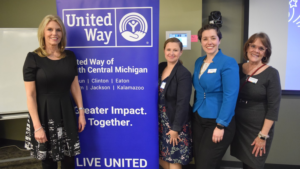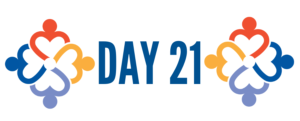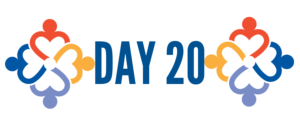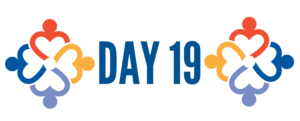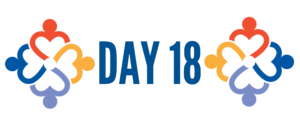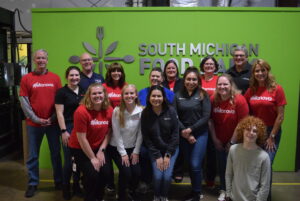
Over the past five years, United Way BCKR has been growing its efforts to promote equity, diversity, and inclusion (EDI). The task ahead is to accelerate this evolution.
“We firmly believe EDI is critical to our impact work and to our regional community,” said Chris Sargent, President & CEO. “That’s why every investment, every partnership, every opportunity we have to be an advocate, we do all these things guided by the principle of building racial and economic equity.”
That principle begins with understanding what equity means. It’s different from equality. Equality attempts to treat people fairly by treating them all the same; equity treats people fairly by recognizing and addressing the unique needs and barriers they face.
“People who are Black, Indigenous or other People of Color (BIPOC) often struggle because our social systems and structures are built upon historically racist ideals,” Sargent said. “That’s hard for some non-BIPOC people to hear, but it’s true. We have to change those systems. That’s the only way we can become a community where every person has the chance to succeed.”
United Way BCKR is doing its part in a number of ways. For example, partners who receive grants from United Way have to demonstrate how their funded program strengthens equity, and measure and report progress. Also, the W.K. Kellogg Foundation tapped United Way to facilitate the Catalyzing Community Giving initiative, which provides ways for communities of color in the Battle Creek area to identify and lead their own philanthropy. And when United Way was asked to manage micro-enterprise grants in Kalamazoo during the pandemic, it developed a targeted approach supporting BIPOC- and women-owned businesses.
To raise awareness and rally advocates, United Way BCKR launched the 21-Day Equity Challenge in late 2020 and again this year. More than 1,990 people participated, receiving daily emails and links to strengthen their understanding of racism and how to become anti-racists.
Sargent noted that United Way also took a bold step to audit its EDI efforts. Cross Movement Social Justice Consulting did the audit.
“Where we’re doing well is a clear awareness and practice of the value of equity, diversity and inclusion through our external impact, including culturally responsive grantmaking that is explicit about race, racism and race equity; growing in our ability to implement EDI best practices internally; engaging in community-driven efforts to promote racial justice and equity; and applying a racial equity lens to every aspect of our work,” said Sargent.
“Areas where we have room to grow include building a more racially diverse board and staff; strengthening organizational policies and practices to be more inclusive; improving equitable grantmaking; engaging communities of color more effectively; and moving toward an anti-racist organization.
“Our leadership, staff, and volunteers are committing significant resources to bringing about change,” Sargent said. “We will continue on this path.”
What can you do?
Check out our Leading With Equity page to learn more about our commitment to equity and explore our 21-Day Equity Challenge. You can also sign up for our Equity Matters newsletter.


